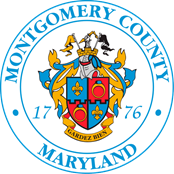Montgomery County, Maryland Información en español

Press Releases - County Council
Councilmember Jawando introduces “More Housing for More People” legislation and zoning proposal
For Immediate Release: Tuesday, December 8, 2020
Bill 52-20 would establish protections against rent gouging and multiple rent increases within one year, and would set a base rental amount for certain units; ZTA 20-07 would allow building of “missing middle” housing near Metrorail stations
ROCKVILLE, Md., Dec. 8, 2020—Today Montgomery County Councilmember Will Jawando introduced legislation and a zoning proposal aimed at creating “More Housing for More People” in Montgomery County and protecting the rights of renters.
Bill 52-20 - Landlord-Tenant Relations - Protection Against Rent Gouging Near Transit, would establish protections against rent gouging for certain rental units; set the base rental amount for certain rental units; provide for exemptions from certain rent protection requirements; and require each landlord to submit an annual report regarding rents. The goal of this legislation is to set standards regarding rent increases near certain transit corridors and to ensure that unfair rent gouging does not take place.
Zoning Text Amendment (ZTA) 20-07, R-60 Zone - Uses and Standards, would allow owners of R-60 zoned property located within one mile of a Metrorail station to build duplexes, townhouses and multi-family structures within the current R-60 lot coverage, building height, setbacks, minimum lot size and minimum parking requirements. Councilmember Will Jawando is the lead sponsor.
Councilmember Jawando said: “The combination of ZTA 20-07 and Bill 52-20 can provide a win-win situation for all: Tenants, landlords and the environment. If we truly want to provide “More Housing for More People” in Montgomery County, we must continue to look for innovative ways to increase affordable housing and the overall housing stock while protecting our renters from displacement.”
Bill 52-20 would set standards regarding rents charged within one mile of rail transit stations and within half a mile of bus rapid transit stations. Rents within these areas would be required to comply with rent guidelines published by the Department of Housing and Community Affairs (DHCA). Certain rental properties would be exempt from the rent standards under the bill. Specifically, certain owner-occupied properties, religious and non-profit organizations, and licensed facilities, among others, would be exempt.
A regulated rental unit under the bill would be permitted to raise rent by an allowable increase once per year. Alternatively, the landlord would be permitted to “bank” the allowable increase and apply it to a future year. Landlords subject to the bill would be required to submit annual reports regarding their rents to DHCA.
Under this zoning proposal, more flexibility would be allowed for projects constructed on R-60 zoned sites located within a half mile of a Metrorail Station. Such sites would be excluded from infill lot coverage limits and the minimum parking requirements would be decreased.
“Missing Middle” housing refers to a range of building types that are compatible in scale, form and construction with single-family homes, but include multiple housing units. Missing Middle housing is typically a two-to-four story multi-unit, clustered housing such as smaller townhouses, duplexes, triplexes, quadruplexes, detached courtyard cottages, attached courtyard apartments or smaller apartment buildings (with fewer than 20 units) that are typically in walkable, transit-accessible neighborhoods.
ZTA 20-07 aims to provide a solution to the lack of this “missing middle” housing stock by removing existing barriers and encouraging the development of these types of housing near existing transit corridors.
Council public hearings for these items are tentatively scheduled for Feb. 9, 2021 at 7:30 p.m. The Council staff reports for Bill 52-20 and ZTA 20-07 can be viewed here and here. Councilmember Jawando’s remarks at the introduction of these proposals can be viewed here and here.
# # #
Release ID: 20-489Media Contact: Cecily Thorne 240-777-7972